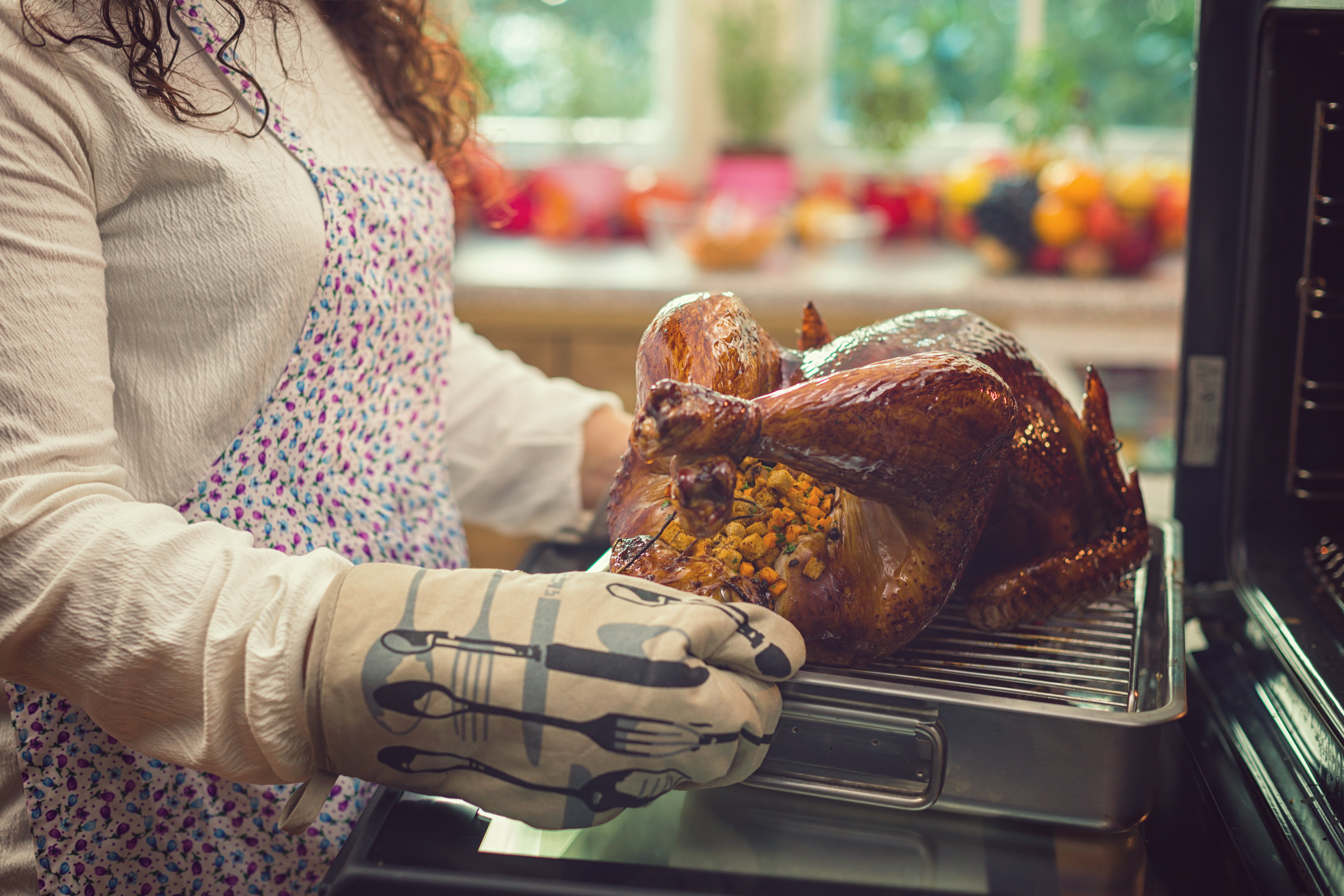My teenage daughter talked us out of celebrating Thanksgiving. I’m glad
My daughter, whose preschool teachers once fashioned her a construction paper pilgrim bonnet, is now aware enough to teach me, her Gen-X mother, to defy revisionist history

A few weeks ago, my sixteen-year-old daughter asked if we could skip Thanksgiving this year.
I blinked at her, taken aback. No turkey, mashed potatoes, or pumpkin pie? When I asked why she’d make such a peculiar request, she said, “Thanksgiving honors the white genocide of Indigenous people.” She used those exact words and made clear that she didn’t feel right about participating.
I protested, though I couldn’t really articulate why. Wasn’t Thanksgiving all about gratitude and spending time with family these days? Her suggestion sounded extreme and rehearsed, almost as if she’d borrowed it from an Instagram meme.
But I don’t know why I resisted eschewing the holiday. We’re liberals living in Seattle and I like to think of myself as open-minded. I am horrified by the realities of colonialism. And our distance from relatives, as well as a number of food-related health issues, keep us isolated anyway, so there are no grandparents to disappoint. No one outside our nuclear family is impatient for my green bean casserole.
I sometimes missed the large spreads and extended family chaos of my childhood, but mostly, with a family of my own, I found the labor and the bland sameness of the food at Thanksgiving to be a burden. It was only since my two kids grew old enough to help cook that I found a measure of satisfaction in our low-key feast. So why was I clinging to the tradition of an afternoon meal on the last Thursday of November? Could I reframe this day and experiment with giving it up?
I advised my daughter to talk it over with her dad and brother. While I waited to hear their viewpoints, I studied up on what Thanksgiving really meant. I wanted to be well-informed and adaptable. My husband and I traded links to articles. I found my knowledge expanding to the truth about that notorious meal between Native Americans and European settlers 400 years ago.
Among other things, I discovered that, although the Puritans who’d landed in what was now called New England held a “Harvest Feast,” they did not invite the local Mashpee Wampanoag tribe that had taught them how to plant beans and squash using fish remains as fertilizer. If members of the Wampanoag tribe did attend, it was accidental rather than because settlers actually invited them.
Most Native Americans consider that day to be the precursor to mass murder, land grabs, enslavement of Indigenous peoples, and rampant disease that blazed through the Wamponoags and other tribal groups. Since 1970, many Indigenous Americans recognize Thanksgiving as a National Day of Mourning. To mark the occasion, they honor Native ancestors and try to educate others about the true history of Thanksgiving.
This past summer, the discovery of mass Canadian graves of Indigenous children surged through the mainstream news. The Holy Childhood school – the last American Indian boarding school to stop “assimilating” Native American children – was located in my Northern Michigan hometown. I had always found the massive white clapboard building oddly chilling but, until recently, I didn’t understand why.
How could I be outraged by the deaths of Canadian and American Indigenous children (and culture) at the hands of white Puritans and still blindly enjoy turkey and gravy on Thanksgiving? Though memories of the tradition had feathered a comfortable little nest in my mind, it was comfort based on ignorance.
My son agreed to forego the traditional celebration if he could, at some point before the calendar year flipped, eat turkey and apple pie. My husband came on board, too. But simply skipping the meal didn’t seem like the right solution either. Once everyone agreed that we would not glorify a Thanksgiving feast, I had to figure out what we would do instead of stuffing our faces and watching TV. I wanted us to spend time together as a family and observe “Unthanksgiving” in a meaningful way.
We live in the Pacific Northwest, which, even on its wettest days, is saturated in verdant shades of green and surrounded by ocean, lakes, and mountains. Communing with nature seemed appropriate. We hadn’t hiked together since the summer of 2020 when the pandemic kept us close to home.
I proposed that we find a nearby trail and explore. We could eat whatever portable food we could pack and it wouldn’t be fancy or labor-intensive. But it would allow us to continue to reflect on the origins of our country and how we wanted to respond to injustices as a family.
My daughter, whose preschool teachers once fashioned her a construction paper pilgrim bonnet, was now aware enough to teach me, her Gen-X mother, to defy revisionist history. Resisting the whitewashing of the original Thanksgiving as a harmonious meal between Indigenous people and European settlers feels right. Or more right, anyway, than how we have observed the holiday in years past.
Join our commenting forum
Join thought-provoking conversations, follow other Independent readers and see their replies
Comments
Bookmark popover
Removed from bookmarks